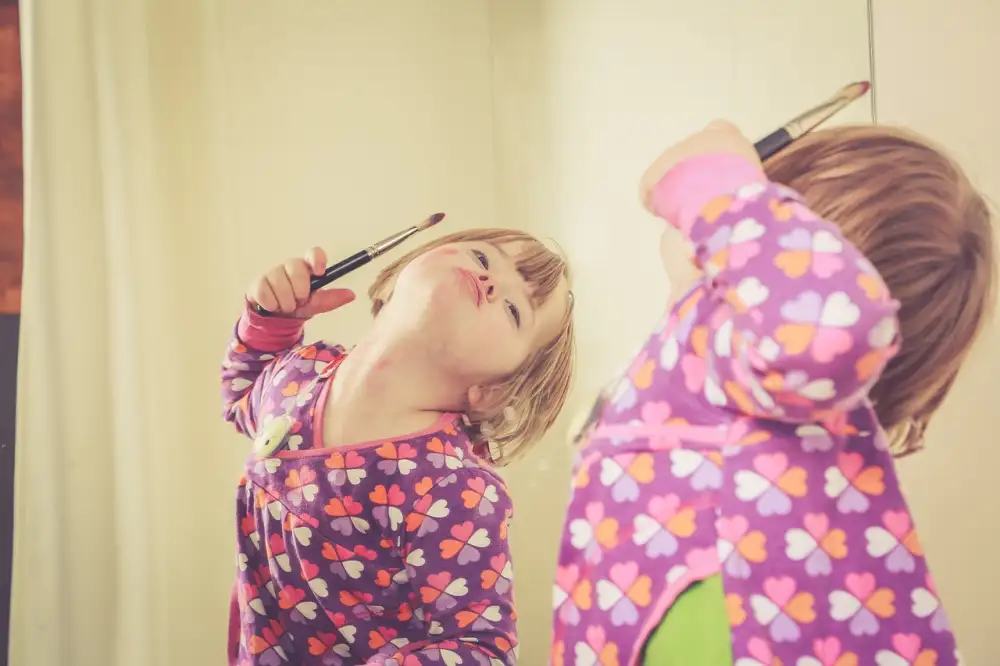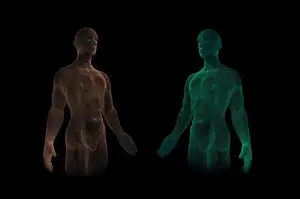Unraveling 'Up Syndrome': A Compassionate Exploration of Down Syndrome in Film and Literature

- Understanding the connection between "Up Syndrome" and Down Syndrome
- Exploring the portrayal of "Up Syndrome" in popular culture, such as movies or books
- The impact of "Up Syndrome" on individuals and their families
- Promoting inclusivity and acceptance for individuals with "Up Syndrome"
- Resources and support available for those affected by "Up Syndrome"
"Up Syndrome," also known as Trisomy 21, is a genetic disorder that affects approximately one in every 700 births worldwide. It is characterized by the presence of an extra copy of chromosome 21, leading to developmental delays and physical characteristics such as low muscle tone, upward slanting eyes, and a flat facial profile.
The term "Up Syndrome" was coined to emphasize the positive aspects and potential of individuals with Down Syndrome. It aims to shift the focus from limitations to abilities, promoting inclusivity and acceptance within society.
In recent years, there has been a growing recognition of the importance of understanding and embracing diversity in all its forms. "Up Syndrome" plays a significant role in this discourse as it challenges traditional notions of beauty and normalcy.
Moreover, studying "Up Syndrome" has provided valuable insights into the complexities of human genetics and developmental biology. Researchers have made significant strides in understanding the underlying mechanisms behind this condition, leading to improved medical interventions and support for individuals with Down Syndrome.
By shedding light on "Up Syndrome," we hope to foster a greater understanding and appreciation for individuals living with this condition. Through education and compassion, we can build a more inclusive society that values the unique strengths and contributions of all its members.
Understanding the connection between "Up Syndrome" and Down Syndrome
Understanding the connection between "Up Syndrome" and Down Syndrome is crucial in order to fully comprehend the impact of this condition. "Up Syndrome" is a term coined to describe the unique abilities and strengths of individuals with Down Syndrome. It emphasizes their potential for growth, development, and achievement, challenging the traditional stereotypes associated with this genetic disorder. While "Up Syndrome" does not refer to a separate medical condition, it serves as a reminder that individuals with Down Syndrome are capable of leading fulfilling lives and making valuable contributions to society. By acknowledging the connection between "Up Syndrome" and Down Syndrome, we can foster a more inclusive and compassionate society for all individuals.
Exploring the portrayal of "Up Syndrome" in popular culture, such as movies or books
In popular culture, "Up Syndrome" has been portrayed in various movies and books, shedding light on the experiences of individuals with Down Syndrome. Films like "The Peanut Butter Falcon" and "The Upside" have garnered critical acclaim for their authentic portrayal of characters with "Up Syndrome". These stories not only showcase the challenges faced by individuals with Down Syndrome but also highlight their unique abilities, talents, and aspirations. Through these portrayals, society is given an opportunity to gain a deeper understanding of the lives of those affected by "Up Syndrome" and to challenge any preconceived notions or stereotypes they may hold.
The impact of "Up Syndrome" on individuals and their families
Individuals with "Up Syndrome" face unique challenges that can have a profound impact on their lives and the lives of their families. The physical and cognitive disabilities associated with the condition often require specialized care, therapies, and support services. This can place a significant emotional, financial, and time burden on families as they navigate the complexities of managing their loved one's needs. However, it is important to recognize that while there may be challenges, individuals with "Up Syndrome" also bring immense joy, love, and resilience to their families. Their unique perspectives and abilities can foster a sense of compassion, patience, and understanding within their households. Families who embrace these differences often find themselves growing stronger together as they learn to celebrate each individual's strengths and accomplishments. By providing a nurturing environment that encourages growth and independence, families can help individuals with "Up Syndrome" thrive and lead fulfilling lives. It is crucial for society to recognize the impact of "Up Syndrome" on families and offer support systems that promote inclusivity, acceptance, and equal opportunities for all individuals affected by this condition.
Promoting inclusivity and acceptance for individuals with "Up Syndrome"
Promoting inclusivity and acceptance for individuals with "Up Syndrome" is crucial in creating a more compassionate society. It starts with education and awareness, challenging stereotypes and misconceptions about the condition. By highlighting the unique abilities and strengths of individuals with "Up Syndrome", we can foster a culture of acceptance and understanding. Encouraging inclusive environments in schools, workplaces, and communities is essential to ensure equal opportunities for all. Let us embrace diversity and celebrate the remarkable contributions that individuals with "Up Syndrome" bring to our world.
Resources and support available for those affected by "Up Syndrome"
There are several resources and support systems available for individuals and families affected by "Up Syndrome". Organizations like the National Down Syndrome Society provide information, advocacy, and support to help navigate the challenges associated with this condition. Support groups, both online and in-person, offer a safe space for individuals to connect with others who understand their experiences. Additionally, there are educational programs and therapies specifically designed to enhance the development and well-being of those with "Up Syndrome". These resources play a crucial role in empowering individuals and their families to lead fulfilling lives.
In conclusion, it is essential for society to embrace diversity and celebrate the strengths of individuals with "Up Syndrome." By understanding the connection between "Up Syndrome" and Down Syndrome, we can promote inclusivity and acceptance. Through the portrayal of "Up Syndrome" in movies and books, we can raise awareness and break down stereotypes. Let us support those affected by "Up Syndrome" by providing resources and creating a supportive environment. Together, let's celebrate the unique abilities and contributions of individuals with "Up Syndrome" in our communities.
Published: 22. 12. 2023
Category: Food



